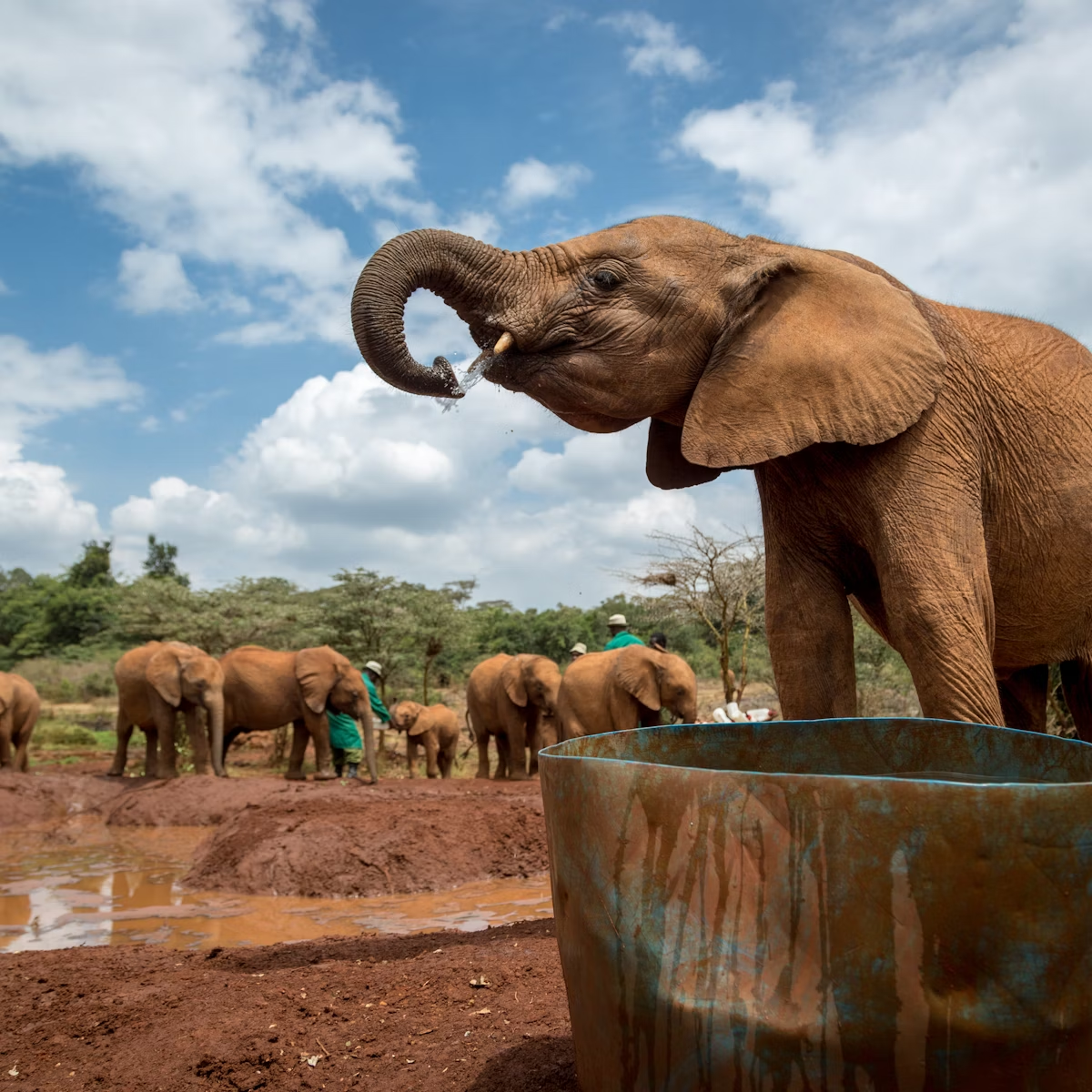Kenya’s wonderful National Museum, housed in an imposing building amid lush, leafy grounds just outside the centre, has a good range of cultural and natural-history exhibits. Aside from the exhibits, check out the life-size fibreglass model of pachyderm celebrity Ahmed, the massive elephant that became a symbol of Kenya at the height of the 1980s poaching crisis. He was placed under 24-hour guard by President Jomo Kenyatta; he’s in the inner courtyard next to the shop.
The museum’s permanent collection is entered via the Hall of Kenya, with some ethnological exhibits such as the extraordinary Kalenjin cloak made from the skins of Sykes Monkeys and a mosaic map of Kenya made from the country's butterflies. But this is a mere prelude. In a room off this hall is the Birds of East Africa exhibit, a huge gallery of at least 900 stuffed specimens. In an adjacent room is the Great Hall of Mammals, with dozens of stuffed specimens. Off the mammals room is the Cradle of Humankind exhibition, the highlight of which is the Hominid Skull Room – an extraordinary collection of skulls that describes itself as ‘the single most important collection of early human fossils in the world’.
Upstairs, the Historia Ya Kenya display is an engaging journey through Kenyan and East African history. Well presented and well documented, it offers a refreshingly Kenyan counterpoint to colonial historiographies. Also on the 1st floor, the Cycles of Life room is rich in ethnological artefacts from Kenya’s various tribes and ethnic groups, while at the time of writing there was also an exhibition (which may become permanent) of Joy Adamson's paintings covering Kenya's tribes.
If you’re keen to really get under the skin of the collection (or the adjoining Snake Park), consider a tour with one of the volunteer guides who linger close to the entrance of both the National Museum and the Snake Park. Tours are available in English, French and possibly other languages. There’s no charge for guide services, but a tip is appropriate.






